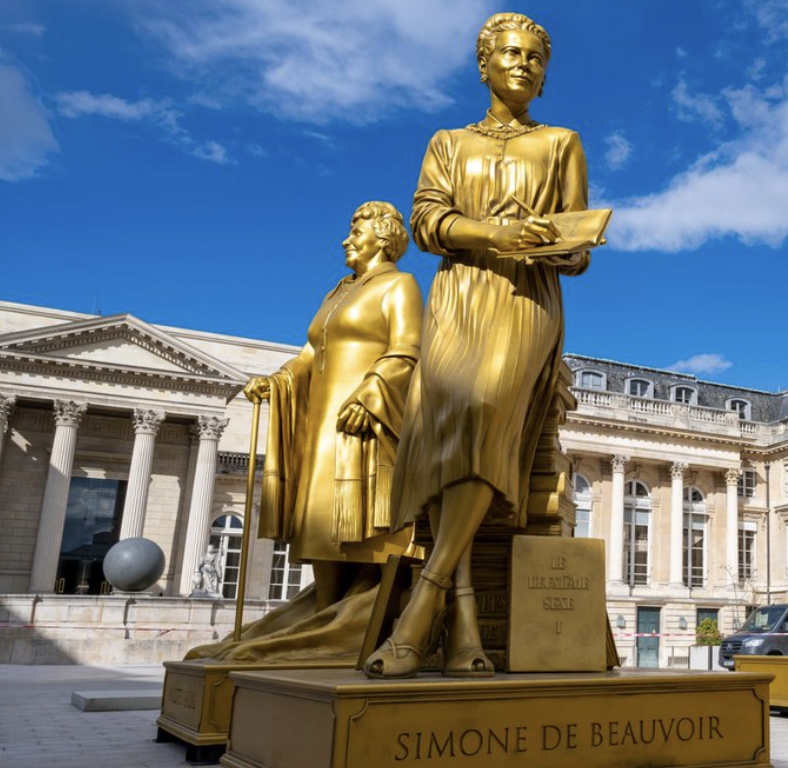An “Alte Kaker” in Paris
Been in this city before but never stayed anywhere near this long—six weeks—and never before was this old.
In the half-century or so during which I have been coming to Paris, I saw a generation of old men, often having lost an arm or a leg to the war, fade away, along with their berets. We old folks now must shoulder responsibility for being similarly out of date (if not similarly brave). I did my part by humming some Jacques Brel and wearing a cowboy hat most days. (And, no, I was not the only person rocking such a hat in Paris . . . but almost.)
The attraction of finally learning to speak French—never easy for me—has further receded as the number of years left in which I might do that speaking has shrunk and as the Parisians have continued to learn English. (I should note that these factors have in no way deterred my wife, who actually had her French complimented, in a good restaurant, by a genuine French person, who, we are pretty sure, was not kidding.) However, I am able, at least, to stumble my way through many of the articles in Le Monde.
Over the decades, I have witnessed the sharp decline in the number of grand newsstands in Paris or at least in the portion of printed things they sell. I’ve seen a similar decline in the number of people pouring over Le Monde or Le Figaro in the cafés. On the other hand, there are still many fewer people staring at their iPhones or laptops in those cafés than are to be found in New York’s growing number of cafés. The denizens of French cafés often engage in conversation. They provide the street with its audience. They rarely seem to be engaging in “remote work.”
And knowing that work has its place, but it is a limited place, is one more crucial ingredient in Paris’ secret sauce. The French mostly don’t rush. They don’t work late. They don’t work weekends. They do not work excessively. One little owner-operated café we frequented not only was closed on Saturdays and Sundays; it was closed on Mondays and Tuesdays. That meant Le Monsieur made less money. Ouais.
This, of course, is hard for a New Yorker to imagine.
And the Parisians also take the time to be polite. My wife forgot once to preface a request with, “S’il vous plait.” She was rebuked. And you don’t want to neglect your “bonjour”s. (It seems no longer required that you add a “monsieur” or “madame.”)
How does this connect with the remarkable artistic and intellectual work Parisians have done? I have nothing original to say there, just: Politeness smooths the interactions even of radical thinkers. Not working too hard leaves extra time for thought.
The world-remaking artists, philosophers and writers who had long gathered in Paris were already beginning to be spoken of in the past tense during my first visits. Sartre had become and remained a staunch Communist somewhat past the point when the evidence on the Soviet Union and Cuba was in. Camus had died young. Now, in lieu of their statues being granted as much prominence as those of Voltaire and Diderot, Sartre and Camus do get to live on in photographs at the Deux Magots café. Beauvoir is with them there, but she lived longer and, in the end, is much more deserving of a prominently placed statue.
Statues of Beauvoir and some other extraordinary French women were created for the recent Olympics in Paris.
The clutch of thinkers who dutifully carried on the struggle against bourgeois thought in the second half of the 20th century—Michel Foucault and Jacques Derrida among them—are mostly gone with that century, without even photos in cafes to commemorate their quixotic crusades and efforts to out-bizarre each other, as John Lennon did to Paul McCartney on Revolver.
And just about all this new century has been able to produce in the way of a charismatic French intellectual engagé is Bernard-Henri Lévy, and he is not only an immigrant from Algeria but, being a year older than I am, an immigrant from the previous century. There are, in other words, signs that the procession of world-class Parisian thinkers is fini.
I walk more now than I did when I had more places to which I had to go. And Paris—with its extraordinary 19th-century, Haussmann-liberated beauty and its exuberant café life forever spilling onto the streets and into the plazas—probably was and remains the best walking city on earth. Its walkability has even been upgraded a bit by some strict new restrictions on cars in the city’s center. (The proliferation of pedal- and electric-powered bikes, some on green-colored paths that share some sidewalks with pedestrian paths, is, however, a new peril for the peripatetic.)
One of the secrets of aging with equanimity, I thought (when it was others who were doing the advanced aging), is to look less at your subject-to-diminishment self and more at the still-vibrant and out-and-about world. And, of course, Paris offers a particularly engrossing performance of out-and-about. I can’t, however, say I was particularly adept at carousing vicariously.
Nor did I manage the thing itself. Indeed, this version of me—the one which finally got a chance to spend these weeks in Paris—drinks less, eats more carefully and turns in earlier than earlier iterations. C’est dommage, non?




